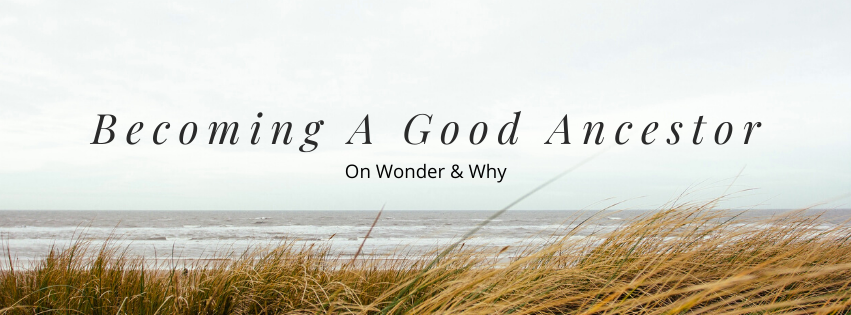I was hesitant to publish a newsletter about acedia as many of the articles come from Catholic sources. I find that acedia is the right word for right now. Perhaps we can move it out of the 4th-century monastic desert to describe our feelings now. Naming something can help us understand it, and maybe, move past it.
Read the articles below with an open mind and an open heart. Together we can move from acedia to activism.
First, let’s start with what acedia is. Atlas Obscura tells us of the origins of the word. Acedia was first described in the 4th century by a Christian monk describing how it felt to do the same thing day after day without end. The word was lost as it evolved to the sin of sloth as described by Thomas Aquinas. (4-minute read)
Before Sloth meant Laziness, It was the Sin of Acedia
Deconstructing Acedia (3-minute read)
Every article about acedia needs to start with a definition because the word has fallen out of the everyday lexicon. The last 18 months have brought acedia back into view. Kiply Lukan Yaworski tells us why acedia is as relevant as ever in the age of distraction that we find ourselves in. Perhaps you can see yourself in her examples, as I do. (10-minute read)
What is Acedia & Why it is important during the COVID-19 Pandemic
Acedia: The Lost Name For The Emotion We’re All Feeling Right Now (4-minute read)
Scott Beauchamp offers us Five Cures for Acedia. The cures for acedia are simple and can be found in almost any self-help/personal productivity treatise: tears, productivity, anger, a meditation on the shortness of life, and perseverance. Centuries have not changed man’s need to find meaning in work. (4-minute read)
Acedia Gratitude (3-minute read)
Bringing the feeling of acedia to the climate crisis seems like an easy leap. The problem is too big; the problems are too numerous; the problems are elsewhere. Sami Grover tells us that inaction is not the same as not caring. Sometimes inaction is acedia, and sometimes, inaction comes from not knowing what meaningful action to take.
Climate Inaction Is Not The Same As Not Caring
And Lisa Bennet reminds us that we are only human.
Most Discussions On Climate Change Ignore These 10 Basic Facts About Human Nature
Interlude
Acedia & Me
Almost every day, with my coaching clients, I am helping people move out of acedia. Busywork is a plague for the work-from-home-I’m tired/distracted/disinterested workforce. I am certain you have heard the statistic that seventy percent of workers are disengaged to some degree, in spite of decades of self help with goal-setting, vision-boarding, and purpose-driving. I make a living keeping clients focused on their next goal, their authentic self, their purpose. Eventually, striving becomes the bane and thriving is now the buzzword for engagement.
What is thriving in this age of acedia?
According to Adrianna Huffington, the author of Thrive, puts it this way: genuine “thriving in their lives were ones who made room for well-being, wisdom, wonder and giving.”
Taking another personal development book off my shelf, the opening paragraph from David Brooks, The Second Mountain, gave me a thriving pause (a brilliant book, I believe): Every once in a while, I meet a person who radiates joy. These people seem to glow with an inner light. They are kind, tranquil, delighted by small pleasures, and grateful for large ones.
Even Martin Seligman, the godfather of the positive psychology movement, has moved from the pursuit of happiness to the multi-faceted flourishing as the “goal” of each person in their life.
Is another self-help book going to encourage more engagement, bring more joy, bring us moments outside of acedia where the soul should always stand ajar, ready to welcome the ecstatic experience? (Emily Dickinson)
The monastics who defined acedia didn’t enjoy the plethora of choices that we enjoy today to move out of the soul-sucking busy mode to a flourishing, thriving ecstatic experience. Perhaps that is part of our paradox of choice. More choices often mean fewer decisions are made. Acedia strikes.
In my search to find ways to leave this world a little better than I found it, I discovered that awe has the potential to move us out of acedia and to be a transformative possibility. According to research, it makes us feel good; makes us happier; encourages curiosity and creativity; makes us more generous; and even improves health and sharpens our brain. Awe inspires us to move from acedia to action.
Let’s bring more awe into our lives, even in small ways because, as Albert Einstein says: “The most beautiful thing we can experience is the mysterious. It is the source of all true art and science. He to whom this emotion is a stranger, who can no longer and stand rapt in awe, is as good as dead: his eyes are closed.”
